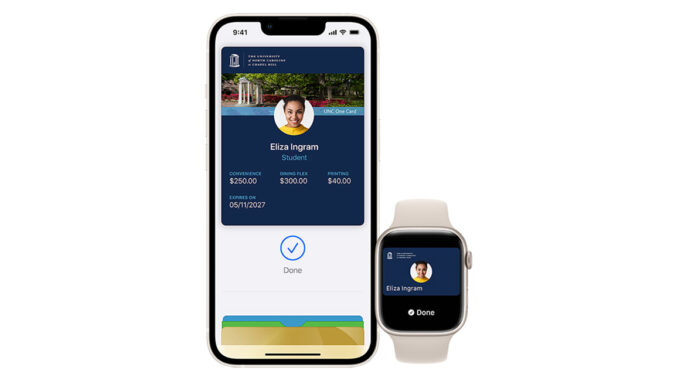
RALEIGH —Wake County Superior Court Judge Keith Gregory last week denied a request for a temporary restraining order against the State Board of Elections over that body’s approval allowing UNC Chapel Hill students to sue campus digital ID to vote.
Gregory issued his ruling Sept. 19 after hearing arguments from lawyers representing the Republican National Committee (RNC), the North Carolina State Board of Elections (NCSBE) and two parties acting as intervenors in the lawsuit — the Democratic National Committee and the Affirmative Action Coalition.
The RNC and North Carolina Republican Party (NCGOP) sued the NCSBE over the board’s Aug. 20 decision to allow the use of the digital ID for voting. The NCSBE vote was 3-2 down party lines, with the Democratic majority voting in favor. The RNC and NCGOP lawsuit argued that North Carolina law only permits physical, tangible forms of photo ID for voting purposes, not electronic versions.
State Special Deputy Attorney General Mary Carla Babb, representing the NCSBE, argued during the hearing that the legislature had “intended this to be a broad, wide law.”
The day before the hearing, the NCSBE filed a brief claiming its authorization of the Mobile One Card as an acceptable photo ID did not violate state law as plaintiffs claimed.
State law requires the NCSBE to “approve the use of student identification cards issued by a constituent institution of The University of North Carolina” and “employee identification cards issued by a state or local government entity” if certain criteria are met. The NCSBE’s brief asserts the Mobile One Card met the criteria and the board was legally obligated to approve the digital ID as an acceptable form of voter photo identification.
The digital ID lawsuit was the fourth filed by the RNC and NC GOP over the last month.
Republicans also sued the NCSBE over absentee ballot containers, but that case still shows as pending in Wake County Superior Court. In that lawsuit, the RNC and NCGOP said the NCSBE’s changes to a number memo said absentee ballots didn’t need to be returned in sealed container-return envelopes in order to count and that guidance violates state law.
The other two lawsuits were filed by the RNC and NCGOP in August. Both appear to still be pending in Wake County Superior Court.
The first of those two complaints was over enforcement of Section 44 of Session Law 2023-140, which requires election officials to conduct voter list maintenance based on information about noncitizens who seek to be excused from jury duty.
The second complaint alleged the NCSBE had violated federal and state law by accepting more than 225,000 voter registration forms that did not collect required identification information (driver’s license number or last four digits of a Social Security number) as mandated by the Help America Vote Act.



